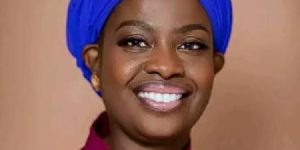Ghana's finance minister Kwesi Botchway said he would push ahead with free market economic reforms despite protests against the rising cost of living. "We are pressing ahead. We are not deterred by the difficulties," he told Reuters in the Nigerian capital Abuja.
"We believe that the path is right and that if we sustain the programme and accelerate the pace of the reform, especially in the area of privatisation, we will be able to alleviate and eradicate poverty within a shorter time than if we chose another path," he said.
Several thousand people marched through Ghana's second city Kumasi on Thursday to protest against the rising prices which they partly blame on the introduction in April of a 17.5 percent Value Added Tax (VAT).
A similar march by 50,000 people in the capital Accra on May 11 ended in bloodshed when shooting broke out. Five people died. Botchway, who was in Abuja for the annual meeting of the African Development Bank, said Ghana's economy had benefited from a decade of IMF-back Structural Adjustment Programme (SAP), which included currency devaluation and trade liberalisation.
"There has been a fundamental turnaround in the economic performance of the country," Botchway said. "The pre-reform decade was characterised by a minus five percent decline in per capita income as well as a decline in real GDP (Gross Domestic Product) growth averaging about two percent per annum over that decade.
"After the recovery programme we have seen GDP growth revived to five percent per annum, per capita income swing around to a positive two percent per annum over the post reform decade," he said.
Botchway said though many Ghanaians blame VAT for rising prices, the real causes of high inflation -- now about 35 percent against a programme target of 20 percent -- were the rise in money supply growth and a bad food harvest last year.
Nevertheless, the government has proposed to Parliament a cut in the VAT rate to 15 percent and a lowering of the threshold for registration for the tax.
Botchway said the government of President Jerry Rawlings brought in VAT as a way of generating needed revenue from indirect taxation which it wanted to make "the cutting edge of national domestic resource mobilisation."
"We introduced VAT in order to reduce our dependence on foreign sources which accounted for about a half of our growth over the past 10 years," he said.
He said Ghana's liberalisation policies have led to increases in exports, savings and national reserves which now cover more than four months of imports.
The country has also been able to repay its debts and maintain a working foreign exchange system, he said. "What we need to do is to alleviate poverty by expanding investment, especially private sector investment, so as to make for greater employment generation so people can find jobs." He said 1995 was a critical year for Ghana's economy. "The crunch is this year. If we are able to maintain the stability of the macroeconomic environment and generate a modest surplus in the budget so the government doesn't crowd out the private sector by undue borrowing from the private sector, then the exchange rate will be strong and the private sector will have more credit to expand." he said.
General News of Sunday, 4 June 1995
Source: --
Ghana is pressing ahead with economic reforms, demonstrations or no demonstrations
Entertainment











